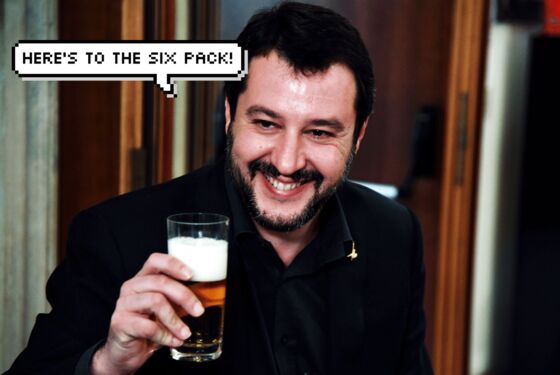The Language of Brussels, Translated
The Language of Brussels, Translated
(Bloomberg) -- Welcome to EU-speak—the language used in the roughly one-square-mile area called the European Quarter in Brussels.
It sounds like English, but native speakers across the Channel struggle to understand it despite thousands of hours of intensive tutoring—otherwise known as Brexit negotiations. It’s mastered only by gray-suited mandarins, hindering communication between the European Union and the outside world, including voters on the continent.
Learning its basics will help you understand how one of the world’s biggest regulatory, commercial and economic superpowers works (or doesn’t).
It’s almost Christmas, so we’ll spare you the really heavy stuff, like how the European Council is different from the Council of the European Union, and how both are completely unrelated to the Council of Europe, even though they share the same anthem and flag.
So here’s our dictionary of EU terms that’ll help you navigate the Forbidden City of Brussels:
College. It’s not a place of higher learning. The College is the group of 28 EU Commissioners (one from each member state). College meetings are important because that’s where key decisions are made by the Commission—the bloc’s executive and regulatory arm—like the biggest-ever fine slapped on Google, for example.
Copenhagen Criteria. Not tips for visiting the Danish capital but the basic conditions that countries seeking to join the EU must meet to become members. The term comes from a 1993 EU summit in Copenhagen that established the criteria.
Enhanced Cooperation. It’s not a happy club where everyone’s singing kumbaya. Far from it. It’s the EU’s way of shutting out countries that resist a particular law or initiative. At least nine EU states have banded together to drive forward plans to set divorce law, patents and possibly even a financial-transaction tax.

Green Paper. Documents published by the European Commission to stimulate discussion on important topics at the EU level are not actually green. But they might be printed on recycled paper.
Horizontal Issues. Should be code for a nap but is not. Sadly, when EU officials say they’re working on these, it usually means they’re discussing policy and internal issues with other departments.
Non-Paper. The diplomatic version of René Magritte’s famous painting “Ceci n’est pas une pipe.” A non-paper is very much a paper, only it has an informal status. Non-papers contribute to policy discussions.
Remedies. Not aspirin but a plea by companies to relieve antitrust pains. In mergers, it’s usually an offer to sell factories or a business.
Screening. The EU’s process for examining whether the laws of a country that wants to join the club are aligned with those of the bloc. Bring popcorn.

Sherpas. Not Himalayan guides but the top diplomatic advisers of heads of states or government who prepare all their key meetings.
Six Pack. No Belgian beers or tight abs. It’s just a group of six EU laws adopted in 2011 to increase economic coordination between member states and tighten rules around excessive deficits.
Reverse Sunset. Definitely not a sunrise. This specifies that legislation will only become valid later if certain conditions are met—the opposite of a sunset clause.
Toilettage. If you’re expecting grooming for dogs, you’ll be disappointed. In Brussels, it means the process of scrutinizing new EU legislation for mistakes before it is published.
Undertaking. Not a funeral, not a promise and dotted all over EU documents. An undertaking, almost a direct translation from the French “entreprise,” is a catch-all term for a company or an organization or any sort of entity, be it a co-operative or a charity.
Vertical Restraints. No, not 50 Shades of Gray. Antitrust regulators are increasingly interested in how manufacturers dictate retailers’ terms of sale, from “recommended” prices to online. There’s a big legal debate about how bad these are, with luxury companies arguing that they need to protect their brand image by shunning shoddy web sales.
--With assistance from Alexander Weber, Jonathan Stearns, Ian Wishart, Viktoria Dendrinou and Patricia Suzara.
To contact the editor responsible for this story: Lukas Strobl at lstrobl@bloomberg.net, Vidya N Root
©2018 Bloomberg L.P.